Kashmir is mired in a series of overlapping conflicts, rather than being a single issue to be solved. In an exclusive interview with Syed Asma, academician and Kashmir expert, Navnita Chadda shares her scholarly insights on Kashmir.
KL: Tell us a bit about yourself?
Navnita: I am a professor. I teach in Delhi University. I read and write. My main disciplinary base is International Relations but Kashmir has been my area of interest for 20 years. I started working on Kashmir in 1992 when movement was on its peak. Since then I have been reading and writing on the subject. So, it has been a long while.
KL: You have so far written two books on Kashmir. Being a non-local, what prompted you to choose Kashmir as a subject?
Navnita: When I started my first project I did not choose Kashmir as such. My interest was academic and quite conceptual in nature. I wanted to understand in a country like India where there are so many diverse identities why is it that some identities at any given historical juncture become politicized, and why some of them become violent? I had a chance of looking at Kashmir, Punjab and North East India and as luck would have it, the first library I consulted at Nehru Memorial Museum, Kashmir was the most organised section there. I started with Rajtarangni, it seemed interesting, so I read more. The more I read about the place the more I realize that there is so much more to understand. Every time I come I learn a new thing about this place and I am still learning.
KL: What were you working for and what was the project about?
Navnita: I was then working as Assistant research Professor in Centre for Policy Research. The project basically was why some identities get politicized and why some get violent? So, my first book, ‘State, identity and Violence’ was born out of that project. It came out in 2002.
KL: What is your understanding of the conflict in Kashmir? What do you think people in Kashmir want?
Navnita: There is no single definition of conflict because I do not think there is a single conflict in Kashmir. There are several layers and several players to it. Each conflict has its own dynamics and they all overlap. It is not in a neat and straight category. No conflict is too generous that it won’t get impacted by others. It does! So, the main conflict, I would say, is here [Kashmir] – the demand for separation and self-determination that was voiced in 1980’s. But there were so many other conflicts in the same period like Ladakh started the movement for the status of Union territory and Jammu had raised the demand for more integration. Then there were several other layers like that of linguistic identity, conflicts like Gujjar demanding Schedule Tribe status. Later in 1990’s Pandits started demanding their own homeland.
KL: Which among these is predominating?
Navnita: It is obviously the separatist movement or the Azadi movement but it does not capture the dynamics of the whole state.
KL: Why do you think it is the predominant one?
Navnita: I think because lot of people got affected by it. There is no doubt that whole Kashmir society has gone through a very double-end period for last 20 years. Lot of people have given up their lives, lot of people have lost their lives. There is hardly any family which is not affected by the conflict, so, that makes it most predominant. But it does not subsume other complexities of the conflict. Other conflicts have a dynamic of their own which takes it in different trajectories. And they have impacted on why this one [the predominant one] has succeeded or not succeeded. They all are integrally linked and this was the most interesting thing that I found while researching about Kashmir.
KL: What is the link in all these conflicts and why do you think the main conflict did not succeed?
Navnita: The movement here [Kashmir] demanded self-determination on the behalf of ‘all’ the people of Jammu and Kashmir but they actually were not representing the interest of ‘all’ the people. And ‘all’ was very diverse. They had their own definitions of self-determination. I believe that this is the most critical factor why they haven’t been successful. I think they got check-mated at home. The standard explanation that I find in the literature is that Kashmir’s insurgency got defeated because of India’s military might. My argument is that it got defeated on political grounds and it got check mated by its own communities of the state which did not support the demand. And the leadership [separatist] here fail to reach out to those communities. So when they were voicing the demand of self-determination they did not take the other communities [Jammu, Ladakh and Kashmiri Pandits] on board.
So, basically I think it got fragmented in a very political way and separatist leadership was not in a position to present a front which was all inclusive. Though, military grounds were important but I think ultimate failure was the political one not the military one!
KL: After 2002 elections you had said that the major challenges the new government had to face were ‘deepening communalisation and regionalisation’ in the state. Can you please elaborate?
Navnita: I have said this post Farooq Abdullah’s government after reading the recommendations in the Regional Autonomy Committee (RCA) report. I believe it strengthened the communal fault lines. If you look at the complexion of J&K state today, there are three regions, one is “Hindu majority”, one is Muslim majority and other is Buddhist majority. RCA report re-carved the boundaries of the entire state or suggested to do so. It re-carved the boundaries in such a way that it suggested the entire J&K to be into eight regions, of which 6 became Muslim majority. The way I looked at it historically, it was revival of 1975 plan of ‘Greater Kashmir’ of Sheikh Mohammed Abdullah. I feel that strength of the state lies in its diversity. Plural diverse fabric of society is strength of the society and not its weakness. So, if it is the strength you should not weaken it by undermining it, by territorially casting it different. I saw RAC report to be doing so. That is why I said that the government has to deal with deepening communalisation and regionalisation in the state. I mentioned regionalisation because right from 1947 the traditional argument from Sheikh Abdullah downwards and the entire leadership with Delhi has been that “you promised us certain autonomy and over the years you have encroached upon it. You have taken it away from us. You have not kept your word.” The paradox I find is that they want more autonomy from New Delhi but they refuse to believe in the same principle when it comes to their regions, Jammu and Ladakh. Even the constitution of Jammu and Kashmir supports the principle of unity. This constitution is as unitary as you can get. On one hand you are demanding autonomy from Delhi but you are not willing to share it with your other two regions. This is again where they get check-mated because autonomy principle in my mind will only work if it goes all the way down. So, if you are willing to share the autonomy with the other two regions and if they are willing to share it with their districts and communities then only the principle will work. But the thing is they want to make it work only at one level and say rest they will take care of.
KL: What do you think is the reason, why is it happening?
Navnita: I don’t think there is a single culpable party, I think there are different players responsible to it. Traditionally, people hold Delhi responsible and I am not discounting any of the mistakes that Delhi have made. I have publically written about them. But I believe that the then ruling elite of the state were also equally responsible if not more.
KL: Who exactly was responsible? Was it National Conference?
Navnita: National Conference at that point of time was split. In Bakshi’s time the true Sheikh had broken away. So, National Conference has itself gone through several avatars. So, all of them were responsible. I think Sheikh was responsible when he was in power. Both in early 1950’s and post 1975 he promised to share the autonomy with both the regions but it never materialized. We have had Sikri Commission, Gajendragadkar Commission and many other Commissions where they understood the problem, they agreed to do something about it but it did not deliver for many reasons, which one can get into details. And I do think it is not partisan. I believe if it was PDP government it would have been the same. I don’t find any critical difference between the two parties on this platform. They make promises but they have not delivered. And this is an unfortunate saga. Delhi makes promises and does not keep them but the state government also makes promises and does not keep to.
KL: Do you think state government is powerful enough to fulfil its promises if New Delhi is not willing?
Navnita: Absolutely yes! I personally am very uncomfortable with this thought that state government has no authority and Delhi is dictating its terms. State government has a lot of agencies. Let’s take the case of Panchayat Raj. National Conference took a great leap by reviving the idea of Panchayats. It successfully held elections. Tremendous hopes were generated. There was a high voter turn-out and people defied diktat of militants but devolution of powers among the Panches did not happen. It is not in New Delhi’s hands. It is in state government’s hands. And I believe it is not even in hands of National Conference as a whole, MLA’s across the political parties are not willing to share their power.
KL: And where do you think India in Kashmir has failed?
Navnita: I as a scholar think that in Kashmir’s case we get caught in the chimera that unless we talk to Pakistan we cannot resolve it. In a way it true, but I personally am not convinced that if our population is alienated and if we are saying it is our people so why can’t we reach out to them independently. So, if Delhi is willing to offer a substantive political deal in terms of autonomy, self-rule, and other common grounds, why is it that we can’t reach an understanding with our own people? There I find them….I mean I don’t know whether it is lack of political capital or lack of political determination to go through it. I am sure there are many other limiting factors which not being in policy making I am not able to see, I understand that! Scholars see a thing from an analytical standpoint and policy makers see a thing from a doable point of view so, I understand that. But I still find that there is a critical window of opportunity where the people are fed up with violence but the alienation remains. People want their political aspiration to be addressed and to my mind it can be addressed. So, why there is a gap in that stand is an element of puzzle.
KL: Working with IRIIS (Institute for Research on India and International Studies), what have been your research areas in the past four years?
Navnita: Different ones, not many though! But yes we have focus areas ranging from plurality and development, social knowledge and technology, global transformations and India’s role in there and developmental frame works. But mostly it is Kashmir centric.
KL: Why is it mostly Kashmir?
Navnita: Because it puzzles me. It always teaches me something new. And this has been my interest and not of the organisation I belong to. Kashmir actually intrigues and puzzles me and it is this intrigue that attracts me more to the place and nothing else!
KL: Many believe that IRIIS is funded by Ministry for Home Affairs, how far is that true?
Navnita: It is absolutely incorrect. IRIIS is an independent body. A particular project [media usage patterns among the youth of Kashmir] was funded by MHA but the idea was ours. Look you need to understand one thing. On a government salary, one cannot manage field visits and cannot support the whole team, so you have to outsource. But in a place like Kashmir if you do foreign funded sources, it can be problematic and if you do MHA, it is equally problematic. So my principle is so long as I design the research, I do the research in a transparent, professional and ethical manner, I am fine with it. I assure you that I do not compromise on my methodology and my principles rest does not bother me may that be funding or anything. It was an IRIIS project where we, particularly I, wanted to understand the youth of today and we wanted to understand what is it particularly that is influencing their mind set today.


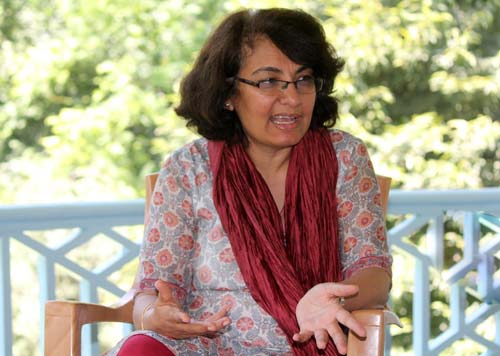

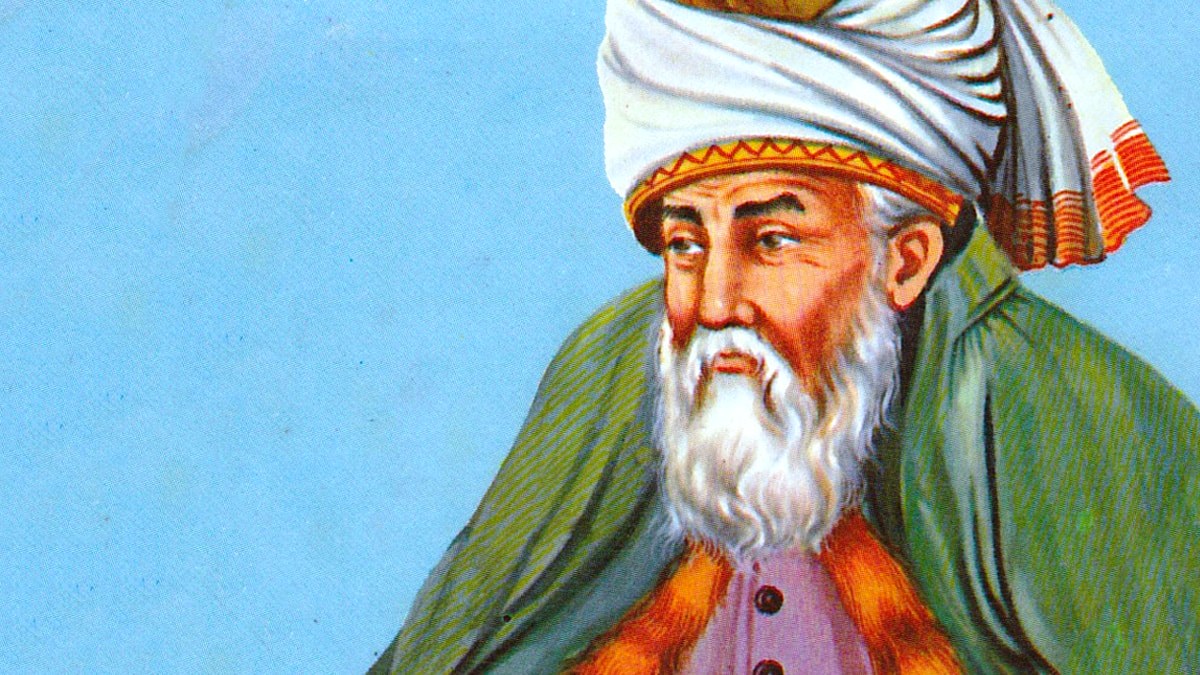
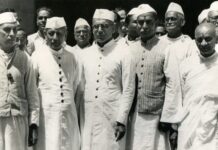
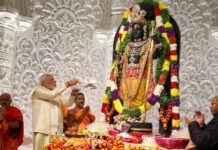

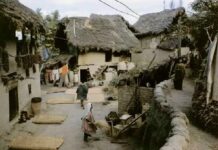


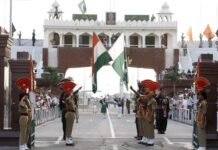





I totally agree with Ms. Navnita Chadda what she expresses – about the kashmir problem .There are many How’s what’s & why’s about kashmir problem which is really a mute puzzle and disturbing.
The kashmir centric political people make New Delhi disturbed and left in an wired confusing state which leads to the confusing of three generation of kashmiris and reaping the brunt of their misdeeds about incredibly unsolved problem of Kashmir–THE STATE OF JAMMU AND KASHMIR.
Navneeta Chadda is grossly mistaken if she considers freedom movement in Kashmir to be as old as 1980’s alone, the delinking of history and reinterpretation of it with indian nationalism is enough proof about, what kind of ethical research she is doing. Such scholars are bandages for National damage, they are mostly employed for image improvement to have a sway over the lowly ‘power grabbing’ people of Kashmir who have deprived Ladakh and jammu (a city itself better placed than srinagar, when largely we were battling with Indian onslaught). I guess Kashmiri people are beyond rosy words. Blaming the state government is another escape mechanism. when it is the state’s money that instead of going to ladakh goes to Amarnath Yatra and Indian Prime Minister’s visit to Kashmir and also partly for arranging nice boarding and lodging for such scholars.